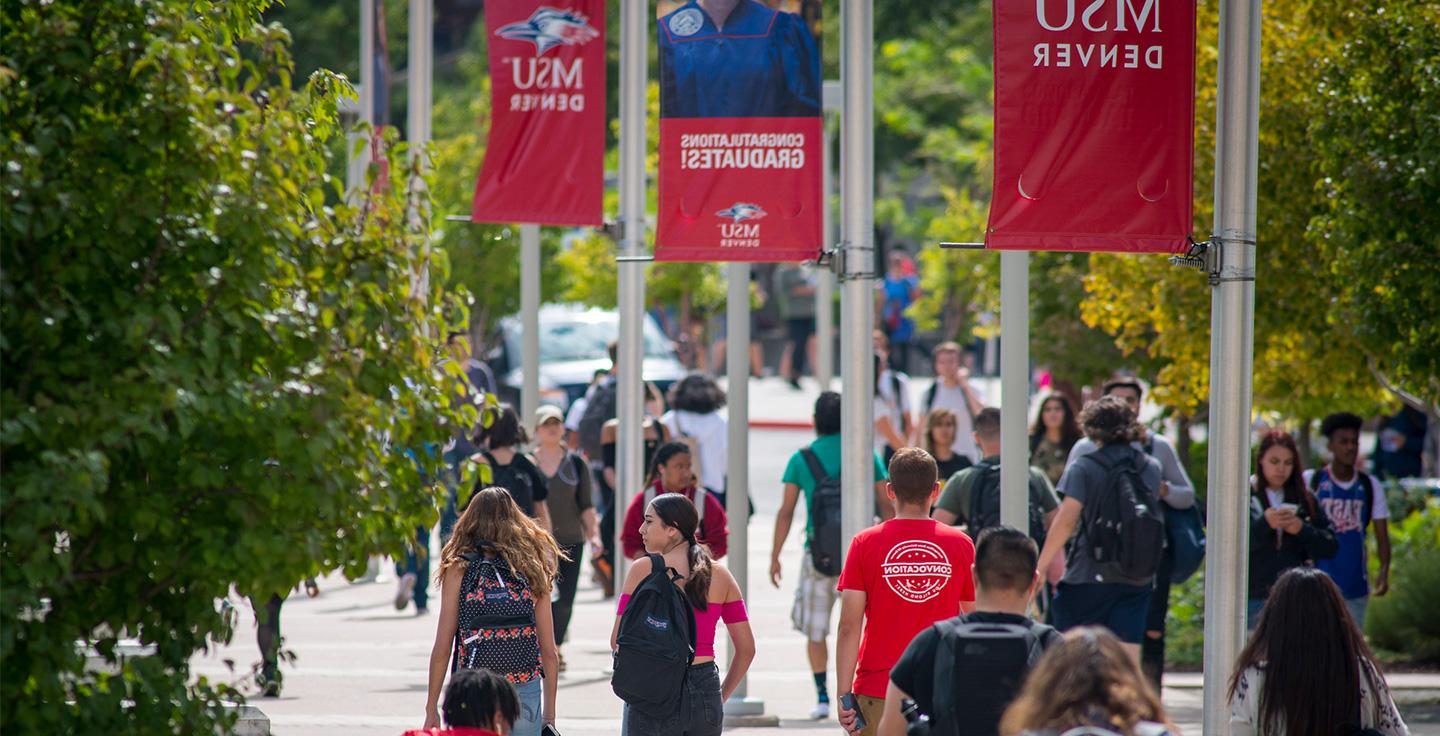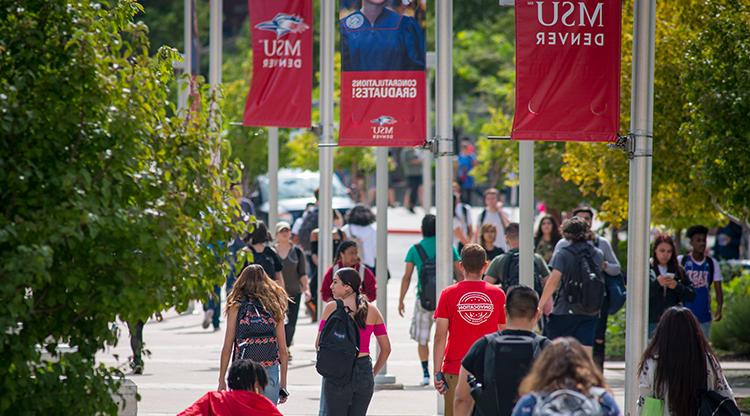MSU Denver's Student Code of Conduct & Academic Responsibilities
MSU Denver students are expected to uphold their academic responsibilities, which are about following academic integrity standards. These standards encompass many things including, but not limited to:
- plagiarism
- cheating
- unauthorized assistance
- outsourcing assignments and exams
- fabrication
- facilitating academic dishonesty for others
Academic integrity, when violated, is also known as academic dishonesty and academic misconduct.
If you are a student, faculty, or staff member, please select the links below to learn more about academic integrity standards, the academic conduct process, and to file a report regarding an academic integrity violation.
To see an overview of the academic misconduct process, click here: MSU Denver Academic Misconduct Process .
Academic Integrity Standards
What you Need to Know about Student Academic Responsibilities
Academic Integrity can be complicated as there are a variety of formats and writing styles. The key is to take initiative and find out what the expectations are before it’s too late. Below is a list of key Academic Integrity terms and standards to help you further understand what it means to uphold the academic expectations at MSU Denver.
Academic Integrity:
Academic integrity standards are about upholding the ethical expectations of being a student and in your academic work. Being honest, demonstrating integrity and developing original work are the values that underpin academic integrity standards.
Each field of study offered here at MSU Denver has its own ethical guidelines that students are learning about and must adhere to when in the profession they are pursuing. A student’s academic responsibilities are no different than upholding the ethics of your chosen field.
Academic integrity, when violated, is also known as academic dishonesty and academic misconduct.
Honesty:
Truthfulness, fairness, and freedom from deceit in all academic work and activities.
Integrity:
Adhering to academic ethics in all coursework; the quality of trustworthiness, honesty, and fairness.
Original Work:
Academic work that is created specifically for a given assignment and does not recycle work done previously by the student. Work for each class, each semester must expound on prior knowledge or develop new knowledge.
Cheating:
An intentional act of unethical behavior where a student receives or provides unauthorized assistance on academic work or takes credit for work that is not his or her own (Kaufmann, 2008).
Fabrication:
The creation of information, including data and facts, that does not exist without acknowledging its fictional nature.
Outsourcing:
Any arrangement with or without compensation for someone else or an online service to do all or part of a student’s assignment. This may include downloading papers and finding answers for course material (including tests and homework). Websites that require payment are often considered outsourcing and may include CourseHero, Chegg, and others.
Multiple Submissions & Full Disclosure:
Community members provide complete and honest information to one another regarding help received. Submission of written work assigned for one course to a second course is not allowed without having received prior permission from both professors. Professors may decide that students cannot submit the same work from a previous class, even if the student is retaking the same course.
Unauthorized Assistance:
Receiving or providing (paid or unpaid) services that are not authorized by the college, department, or faculty. This includes using notes or books, relying on fellow students—whether they willingly participate or not—or going to any outside source(s) for help when it is not authorized, such as during a test or exam. Helping another student on an assignment or exam when unauthorized is considered facilitation of academic dishonesty.
Bribery:
The act of asking for or offering money or services to influence the outcome of academic work.
Resources –
Kaufmann, H (2008). Moral and ethical issues related to academic dishonesty on college campuses.
Journal of College and Character (9)5, July 2008. pp. 1-8




